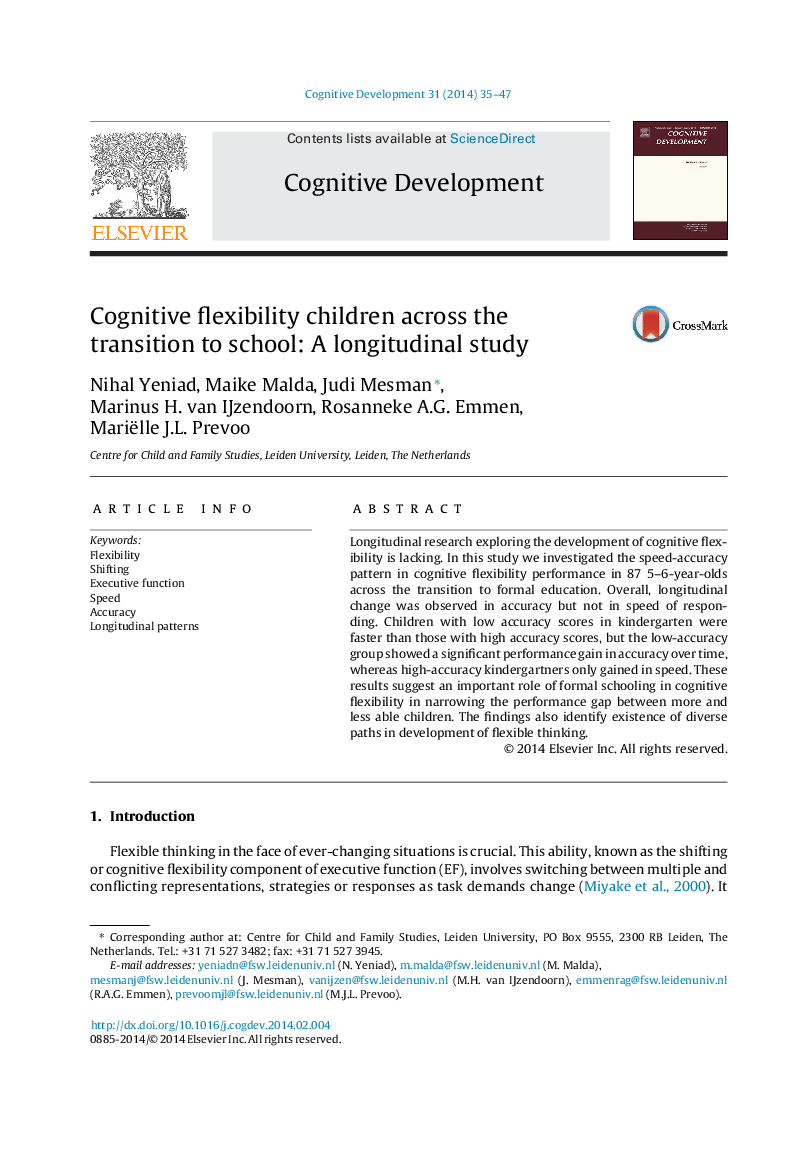| Article ID | Journal | Published Year | Pages | File Type |
|---|---|---|---|---|
| 7272532 | Cognitive Development | 2014 | 13 Pages |
Abstract
Longitudinal research exploring the development of cognitive flexibility is lacking. In this study we investigated the speed-accuracy pattern in cognitive flexibility performance in 87 5-6-year-olds across the transition to formal education. Overall, longitudinal change was observed in accuracy but not in speed of responding. Children with low accuracy scores in kindergarten were faster than those with high accuracy scores, but the low-accuracy group showed a significant performance gain in accuracy over time, whereas high-accuracy kindergartners only gained in speed. These results suggest an important role of formal schooling in cognitive flexibility in narrowing the performance gap between more and less able children. The findings also identify existence of diverse paths in development of flexible thinking.
Related Topics
Social Sciences and Humanities
Psychology
Developmental and Educational Psychology
Authors
Nihal Yeniad, Maike Malda, Judi Mesman, Marinus H. van IJzendoorn, Rosanneke A.G. Emmen, Mariëlle J.L. Prevoo,
